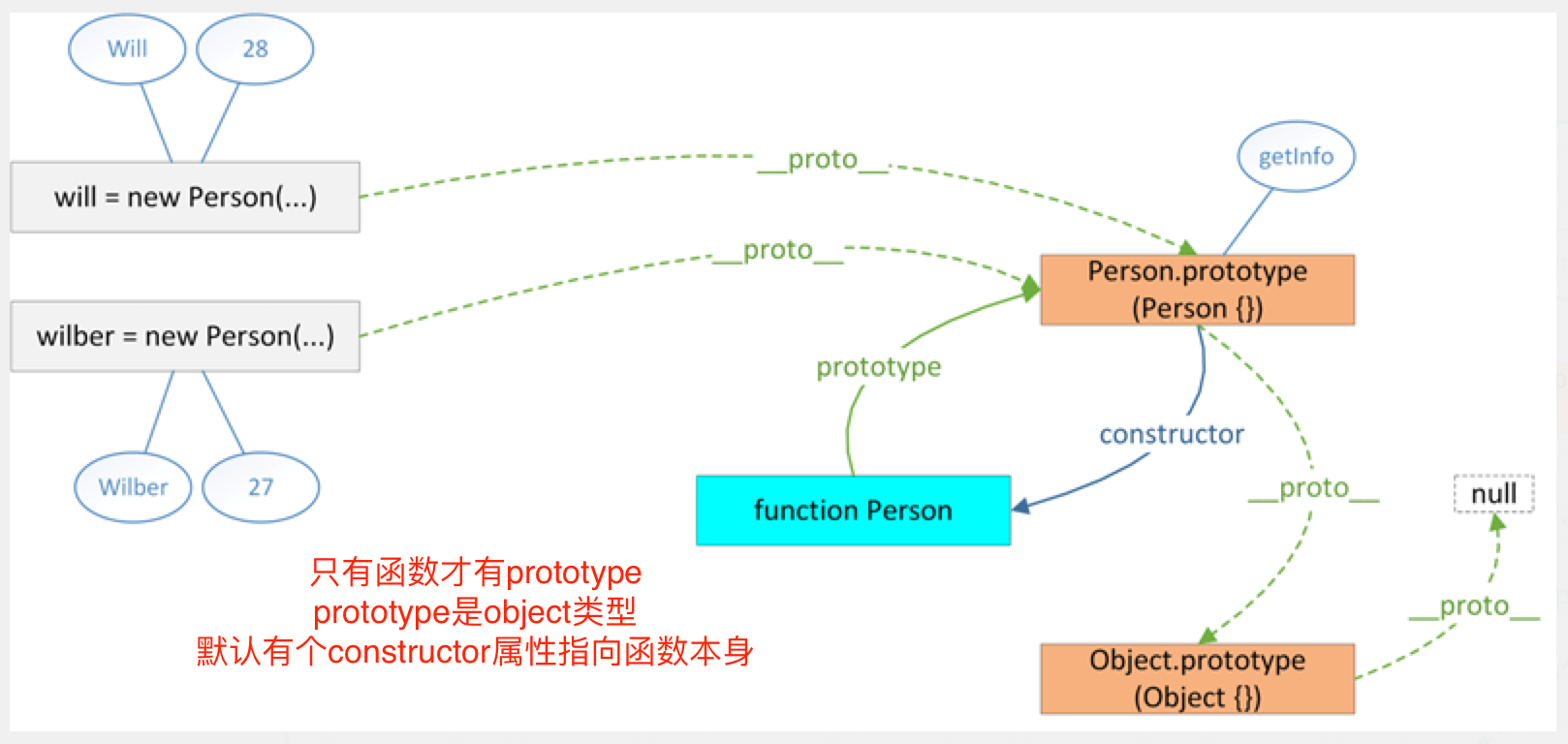原型基础
- 可以通过Object.getPrototypeOf(xx)或xx.
__proto__获取 - null、undefined是没有
__proto__对象 - 函数类型除了有
__proto__还有prototype属性- prototype默认有个constructor属性指向函数本身
1 | function Person(){} |

hasOwnProperty和in属性操作
1 | //01 提供一个构造函数 |
人生已如此艰难,就不要再拆穿了
__proto__获取__proto__对象__proto__还有prototype属性1 | function Person(){} |

1 | //01 提供一个构造函数 |